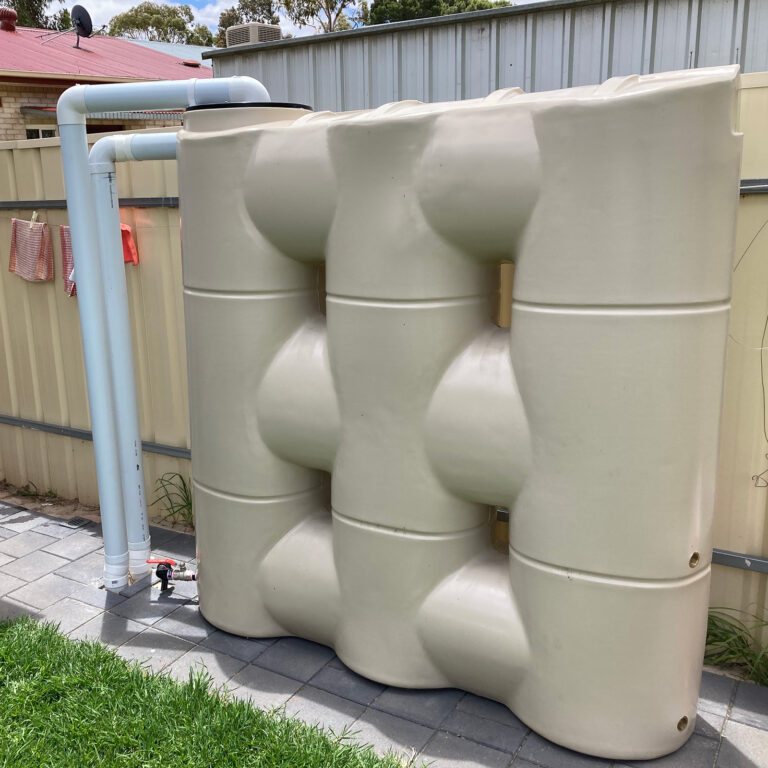Checking Out the Various Uses Rain Tanks for Residential and Commercial Features
As the worldwide focus on sustainable living practices continues to magnify, the usage of rainwater tanks in both domestic and industrial settings has emerged as a relevant option. The diverse uses of rainwater tanks offer a compelling situation for their fostering, not just as a functional water-saving step but also as a testament to responsible resource administration.
Benefits of Making Use Of Rainwater Storage Tanks
Using rain containers uses various benefits for both families and neighborhoods in regards to water preservation and sustainability. One of the vital benefits of using rain tanks is the significant reduction in dependence on mains water supply - Slimline water tanks. By catching and storing rain for later usage, people and neighborhoods can lower their demand for cured water, eventually easing the problem on water treatment centers and decreasing energy intake connected with water transportation and treatment
Moreover, rainwater collecting through containers provides a trustworthy alternative water resource throughout times of water restrictions or scarcities. This stored rainwater can be made use of for various non-potable objectives such as irrigation, flushing commodes, and washing clothing, reducing the stress on typical water sources. Furthermore, making use of rain tanks can cause set you back savings for both homes and neighborhoods by decreasing water bills and reducing the demand for pricey infrastructure growths to fulfill growing water demands.
In essence, the application of rain tanks provides a lasting and eco-friendly method to water administration, profiting both specific customers and the broader community in terms of water preservation, cost-efficiency, and strength.
Rain Container Use in Irrigation
Given the benefits of rainwater storage tanks in saving water sources and decreasing dependence on keys water, a significant application hinges on utilizing kept rain for watering objectives - Slimline water tanks. Rain collecting systems can effectively collect and store rainwater, providing a sustainable water source for sprinkling yards, lawns, and farming areas. By utilizing rain for watering, homeowner can decrease their dependence on cured water resources, causing cost savings and environmental advantages

Among the primary benefits of using rainwater for watering is its pureness. Rainwater is normally soft and devoid of the chemicals and additives often discovered in keys water, making it ideal for nourishing plants without the threat of hazardous impacts. In addition, rainwater is click to find out more at ambient temperature level, which can profit plant growth by preventing temperature level shocks that can occur with chilly keys water.
Rain Containers for Toilet Flushing

Implementing rain storage tanks for toilet flushing is a cost-efficient and eco-friendly technique that can be easily incorporated into both residential and industrial homes. The saved rainwater can be made use content of to flush commodes by linking the tank to the existing plumbing system. This straightforward yet efficient solution can substantially decrease water usage in a building, especially in locations where water shortage is a problem.

Integrating Rainwater Tanks in Landscaping
These storage tanks can capture and keep rainwater overflow from roofing systems, which can then be utilized for sprinkling have a peek at this site gardens, grass, and plants. By utilizing rain for irrigation objectives, residential or commercial property proprietors can decrease their dependence on community water resources, leading to cost savings and preservation of precious water sources.
In addition to supplying a lasting water source for landscape design needs, rainwater containers can additionally help in handling stormwater runoff. By catching rain that would certainly otherwise stream into tornado drains pipes, these tanks can alleviate disintegration, reduce flooding dangers, and protect against pollution of natural water bodies. Integrating rainwater storage tanks in landscape design can add to the total aesthetic appeal of the home, showcasing a dedication to ecological stewardship.
Business Applications of Rain Containers
Utilizing rainwater tanks in commercial settings provides a sustainable service for water administration and conservation, benefiting services and the atmosphere alike. Industrial applications of rainwater storage tanks vary and progressively prominent as a result of the expense financial savings and environmental advantages they offer. One essential industrial use is for irrigation purposes, where harvested rain can be made use of to water landscape design, yards, and agricultural fields surrounding commercial residential properties. This can bring about substantial reductions in water expenses and reliance on community water resources.
Furthermore, rain collected in storage tanks can be dealt with and made use of for non-potable purposes within industrial properties, such as flushing bathrooms, cleansing, and cooling down systems. Overall, the consolidation of rainwater containers in business settings presents a useful and eco liable approach to water management.
Final Thought
To conclude, rain containers supply numerous benefits for both property and industrial buildings. From watering to commode flushing and landscape design, making use of rain tanks can help conserve water sources and minimize water expenses. Furthermore, integrating rainwater storage tanks in industrial settings can result in considerable cost savings and environmental benefits. Overall, the versatility and sustainability of rainwater containers make them a beneficial financial investment for any kind of residential or commercial property owner looking to increase water performance.